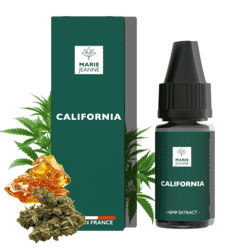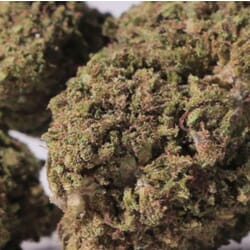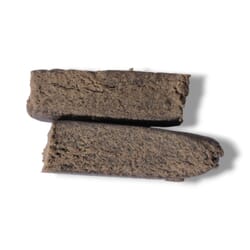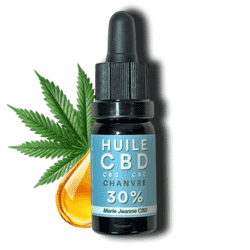CBD AND THE LAW: ARE CBD E-LIQUIDS LEGAL?
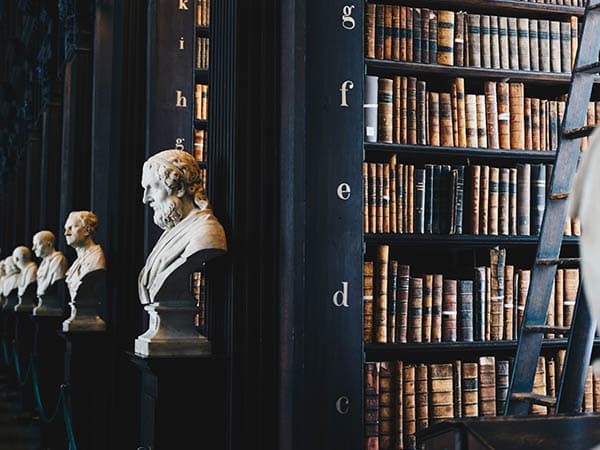
First of all, we would like to state that we do not position ourselves as supporters of cannabis legalisation. It would therefore be unhelpful to breach the laws that explicitly forbid the use of certain hemp varieties but also authorise others.
We must point out that recently published reports are not orders, decrees or modifications to the law. The legislation around the use of an excipient of a legal hemp plant has been clearly defined for years now. Following a series of articles and recommendations from ministerial committees, we have decided to provide some accurate answers surrounding CBD e-liquids and to inform the consumer of current legislation:
- The differences between illegal ‘cannabis’ and legal varieties with no narcotic properties.
- The difference between flowers, leaves, resin and molecular extraction for dilution.
- Exactly what the law says.
The part that concerns us, the natural molecule at the heart of this debate (if it is extracted from legal hemp plants), cannabidiol, or ‘CBD’, is not mentioned in the legal texts about narcotic drugs or poisonous substances in France. Only Tetrahydrocannabinol (THC) and synthetic cannabinoids appear in Appendix 4 of the French Health Minister’s Order of 22 February 1990.

Really, we could end this article here. But, given the naturally established correlation between CBD and hemp plants, we will provide accurate information on the legislation surrounding our products. Marie Jeanne reveals all about the legislation in this area, which guarantees our right to use, manufacture, distribute and sell our products.
The different molecules present in hemp
In France, we need to differentiate between the law that defines narcotic drugs (Article 222-41 of the Criminal Code) and the French Health Minister’s Order of 22 February 1990, the appendices of which contain a list of all narcotic substances, including
So, it is in fact THC and not CBD that is defined as a narcotic drug in the eyes of the law: for this reason, it is forbidden to sell or use THC. Most of the time. The only exception is the delta 9-tetrahydrocannabinol THC molecule, use of which is authorised by Article R 5132-86 1°& 2°of the French Public Health
Code (mentioned below), which governs the use of the hemp plant and its natural substances:

It was following an exemption granted in 2004 for the development of Marinol, a medicine used to treat loss of appetite linked to AIDS that contained dronabinol (synthetic Δ9-THC), that the law first allowed the use of a synthetic THC molecule. In 2007, in a new update, the ‘synthetic’ part disappeared, and the psychoactive molecule present naturally in the hemp plant became usable.
This should be the only debate surrounding THC. Some might be tempted to conclude that, according to the hierarchy of French laws (by which Laws are superior to Orders), natural THC is legal. But the purpose of this first analysis has been to highlight that there are still many contradictions in our legislative texts. Now, let’s get back to talking about molecules and the rights by which and conditions in which hemp can be used in accordance with Article R 5132-86 1°& 2°of the French Public Health Code. We will see that ‘<0.20% THC’ is far from being the only condition governing the use of a certain variety of hemp.

Carefully selected varieties
For several years now, the European Union and France (in slightly different texts) have authorised the industrial use of certain varieties of Sativa L hemp with no narcotic properties. The Order of 22 August 1990 enacted by the French Health Minister deals with the application of this Article R 5132-86, and distinguishes LEGAL varieties of hemp ‘without narcotic properties’ due to their naturally low THC content (<0.20%), identified according to a strict EU method.
Again, the debate could have stopped there; the only legal threshold could be set at the plant’s THC content. But the proliferation of cannabis flowers, leaves, resins and infusions caused confusion around cannabidiol and the legalisation of cannabis in its natural form. Some advocated the broader European law, others focused on low THC content and ignored the conditions concerning authorised varieties, while others yet justified selling infusions but no products made for smoking…
But there is no use umming and ahhing: we need to obey the law, which is quite explicit in this area. In short, the mode of molecular extraction needs to be distinguished and any combination with other products and varieties that do not appear on the list of authorised products must be avoided.
Marie Jeanne and the law
The Marie Jeanne method of extracting cannabidiol means that it is free of all narcotic properties. Our CBD comes exclusively from Sativa L varieties deemed legal by European Union texts and French law.
Our growers, their plants, and the extraction method we use all comply with the specifications imposed by the European Union. Evolving extraction techniques allow us to offer products that only contain authorised excipients from certified crops that are designed specifically for vaping. Contrary to popular belief, there is no ‘legal grey area’ surrounding molecular CBD extraction: there are just laws to study and apply.
Key points
- CBD/cannabidiol must be extracted exclusively from Sativa L varieties ✓
- It may only be extracted from the varieties mentioned in European and French laws ✓
- It must be free of all narcotic properties according to a strict EU calculation method ✓
- Growers must register their hemp-growing activity with the relevant authorities ✓
- The seller must not divulge any alleged benefits or therapeutic properties and is subject to the provisions of regulations (EC) no. 1907/2006 (known as REACH) and (EC) no. 1272/2008 (known as CLP) on the sale of e-liquids ✓

